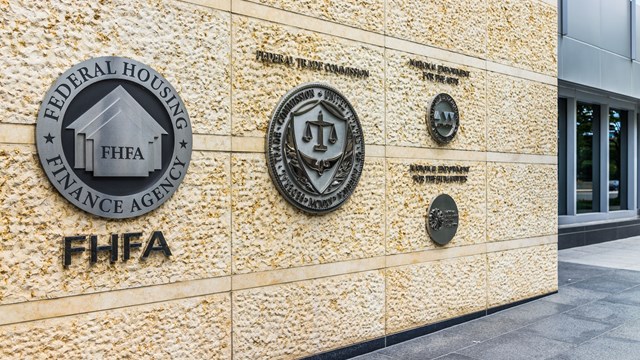
Despite a long history and presence in cities and towns around the globe, condominiums are, too often, misunderstood by prospective buyers—which can translate to a source of conflict after buyers become owners. Regardless of its location around the world, a condominium is generally defined as a form of housing and other real estate that is individually owned among a collective.
Governance in Condos
Beyond that general concept, there are a host of laws, rules and regulations that govern condominiums. In Massachusetts, Chapter 183A of the Mass. General Laws creates a framework for individual condominium documents. Section 11 of that law, for example, details five things that condo boards must do with their bylaws: maintain, repair and replace common areas and facilities, collect the fees for common expenses, hire personnel, establish a method of adopting and of amending the administrative rules and regulations, and establish restrictions and requirements respecting the use and maintenance of the units and the use of common areas and facilities. Within that framework, the association can implement various measures it deems suitable to the operations of that particular property.
Connecticut condominiums, meanwhile, are governed by the Common Interest Ownership Act, originally passed by the Connecticut legislature in 1983—the first state law in the United States to unify and modernize the law of common interest communities. COIA covers in a uniform manner the law of condominiums, real estate cooperatives, and planned unit developments. Like its neighbor’s Chapter 183A, Connecticut’s law has been amended over the years (most recently in 2010) to add clarity or keep up with the times.
It’s incumbent on all owners of condominium units, and especially upon members elected to their association’s board of trustees, to understand what a condominium is (and isn’t), what owners and boards are allowed (or not allowed) to do, and what remedies are available to unit owners and boards when disputes arise.
All too often, problems that arise are based on a lack of understanding—or failure to read—the condominium documents that are provided to homeowners. Basically, condo ownership is the same as ownership of a single family house—except that in addition to owning the space in which the unit exists, the buyer also owns an undivided interest in the common areas. The difficulty many owners have is in recognizing the line between their individual unit and the common areas, and the control over each of those spaces.
Who’s in Charge?
A board of directors in a condominium association may wield a lot of power—or maybe not. The important thing is that board members know the difference.
Howard Goldman, a partner at the law firm of Goldman & Pease in Boston, cites situations where boards overstep their power, although problems often stem from a single member. “One issue we hear about is when a chairman becomes dictatorial and doesn’t take the other directors into consideration… but trustees are elected and can be tossed out of power. We have a client association now, a property with about 50 units, where the homeowners are split about raising money for renovations. One half wants to go forward with upgrades and borrow money for it, (which means) raise everyone’s fees. The other half favors more modest spending. There is a lot of dissention, and already the unit owners called a meeting and got a majority vote to expel four out of the five trustees. They neglected to include an election as part of this ‘impeachment’ process, however, and now they have to schedule another meeting and an election to fill those empty seats.”
Goldman points out the importance of complying with correct procedures when calling meetings and electing—or removing—officers. “The people who are trying to stay in power will look for defects in the procedure” as a way to void actions taken at a meeting. If a meeting notice lacks some bit of information, or is not distributed exactly as outlined in the condo docs, the whole process could be cancelled and the process will have to start all over.
Along with all the antagonism that goes along with ousting board members, Goldman notes, “When trustees are tossed, at least 95 percent of the time, the management (company) goes with them” which adds even further disruption.
When Boards Can Step In
While condo boards don’t have anywhere near the power of co-op boards (see sidebar) they have some control in dealing with abandoned or foreclosed units. Goldman says, “If an association has a ‘right of first refusal’ on a unit, it would be outlined in the condo docs and would have been put there by the (original) developer… to prevent re-sales” by investors--often looking to “flip” properties. He continues, “An association might consider buying a foreclosed unit… due to unpaid condo fees. The board would have to be the successful bidder at a foreclosure auction… This can happen if a mortgage lender just lets the unit go, if it’s a small property in a down-market area.” The low value isn’t worth the trouble of acquiring ownership and trying to sell it.
Condo boards, states Goldman, “can hold onto (the unit) for eventual re-sale, and maybe rent it out, but this situation is rare. Boards generally don’t want to take on the liability of being a landlord.”
Sometimes the trustees believe they have some control over the rental of units, but Goldman notes, “Most condo docs include restrictions about how owners can rent their units, mainly requiring a minimum lease of three to six months.” This is to prohibit short-term rentals such as vacation-home swapping or Airbnb.com in communities that are strictly full-time residential.
One area where boards should take more power, Goldman insists, is by upgrading the condo docs to enable boards and give them more control over tenants in rented units. “When tenants are ignoring (association) rules, and become disruptive, and the owner does nothing, the board should be able to step in and take action… and assess fines to the owner. You see this type of provision in the more sophisticated condo docs,” he adds.
Rules… and Subverting Them
Charles Perkins, a partner with the Westford, Massachusetts-based law firm of Perkins & Anctil, P.C., relates how condo boards sometimes try to control residents’ behavior without the authority of the master deed and bylaws to back them up. “As an example, trustees think they can prohibit pets in general,” he says, “or they can suspend a unit owner’s right to use the pool because they’re in arrears paying their fees. Another popular ban is on smoking… which cannot be regulated inside (individual) units.” He points out that any of these bans may be instituted, “but only if you can amend your condo docs, and that could require anywhere from 51 to 75 percent majority vote by the unit owners.”
“We constantly remind board members to review the bylaws to understand the hierarchy of rules within their own condo docs… and what’s allowed under the bylaws. Older docs are more troublesome, because you find yourself trying to figure out what the original developer intended. For instance, a homeowner may have ‘exclusive use’ of a deck or balcony even though it’s an exterior feature and may be considered like a common area… and the association’s responsibility. But then, who does the upkeep and repair or maintenance on the deck? These details must be spelled out in the docs.”
Even when boards are enforcing regulations within their power, residents can try an end-run to avoid compliance with certain rules. “We’ve had a situation (at a no-pet property),” notes Perkins, “where a unit owner bought a dog, and then called it a 'companion' animal. She managed to collect the necessary documentation and got sufficient proof in line with the federal law. The rules under the Fair Housing Act can override your condo docs, if a resident is handicapped and falls within the limits of the act… There’s a process (to determine) if people qualify for ‘a reasonable accommodation or modification’ of the unit, and the exterior may be included. In general, if a resident requests (modification) then they must pay for it, although under the Mass. Housing Act there are exceptions.”
Rules vs. Bylaws
Frank Flynn, an attorney and a principal in the Flynn Law Group in Boston, reports, “Boards sometimes believe they can pass rules dictating uses within people’s units. There was a court case, Johnson vs. Keith, where the board tried to pass, by (their own) majority vote, a rule that unit owners could not have pets.”
In the actual decision, the court determined the following: “…that ‘Rules and Regulations’ adopted by the board of managers of a condominium and containing a rule that ‘no animals . . . shall be . . . kept in any Unit’ were made part of the bylaws of the condominium as rules and regulations and not to be treated as bylaws, and since G. L. c. 183A, Section 11 (d), only authorized rules and regulations ‘governing the details and operation and use of the common areas and facilities’ of a condominium, the rule respecting animals was without statutory authorization and could not be enforced against the owner of a unit who kept a dog. [317-321].”
“To create a rule banning pets from units,” Flynn explains, “according to the docs for most condo associations, a majority of unit owners having a beneficial interest would have to vote a bylaw amendment to the trust. This beneficial interest may vary according to a unit’s value,” he notes, meaning that it may not be one vote for one unit. If a pricey penthouse condo is valued higher than a basement studio, it will have a higher percentage of interest in the property—and more voting power.
Flynn has had numerous client associations that imposed smoking bans on the entire condo property—even within residents’ units. He explains that boards can, on their own, impose no-smoking regulations for common areas but “if you want to say ‘no smoking’ inside units, it requires a trust amendment.” For communities that think they’d like to totally ban smoking, Flynn says, “First, I’ll meet with the board members and find out what they want to implement. I’ll file a draft amendment, then have a meeting with unit owners.”
With the requisite majority of unit owners voting in favor, the whole property can declare itself smoke free. “If it’s passed, everyone has to comply, even residents who smoke,” Flynn points out, although “sometimes they can be ‘grandfathered in’ if the bylaw makes a provision for that. I advise against creating a grandfathering provision, though, because then you’re still dealing with second-hand smoke. People have been known to sue (the association) if they’re getting smoke—from neighbors—into their units.”
For residents ignoring the bylaw provisions, such as no-smoking, Flynn points out, “Ultimately, there would be a court order, or injunction. Non-compliance could lead to contempt of court… which results in fines or even jail time.”
The master deed and its bylaws can truly wield a lot of control, complete with provisions for enforcement. Board members just have to be familiar with the limits of their condo docs, and know what it takes to change them.
Condominium ownership includes membership in a community, as well as involvement in a larger legal entity. Understanding what that means, even in broad terms, is part of what makes a responsible, conscientious condo owner.
Marie Auger is a freelance writer and a frequent contributor to New England Condominium.






Comments
Leave a Comment